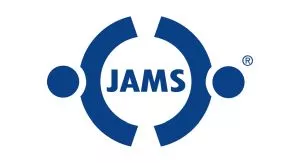Here's a question you may have asked yourself: “If we have internal dispute resolution procedures and people with HR and problem-solving skills, why would we need an outsider to help us navigate conflict?”
This question is top of mind when the JAMS Pathways team engages with organizations. Whether working with an organization as a whole or a particular division, our starting point is learning about your needs, challenges, resources and systems. We conduct a deep dive at the outset by exploring where things stand, what the goals are, who the stakeholders are, what works well and what is falling short. Our aim is not to supplant the processes that are already in place, but to understand interests, identify obstacles and craft a path forward that is tailored to your organization. We help you enhance the system you have while stemming burgeoning tensions so everyone can spend less time focused on conflict and more time on work.
Here are five ways external dispute resolvers such as the JAMS Pathways team make this happen: We focus attention on the problem and your commitment to resolving it; we bring dispute resolution expertise (over 40 years!); we foster organizational learning; we encourage perspective-taking; and we move the task of problem-solving from your desks to ours. Let me offer a little more detail about each of these aspects.
Attention
We focus attention on the problem and the path to a solution. When faced with conflict, it is easy for organizations to split into camps: those on one side of the issue, those on the other side of the issue and those in-between. An organization that proactively involves external dispute resolvers elevates the perceived importance of the issues and the organizational commitment to resolving them. This focuses the organization: People start to pay attention because the organization has sent a very clear message that it is paying attention. Rather than just another meeting to rehash long-standing tensions and conflicts, interactions become facilitated opportunities to listen and learn from those with strong perspectives on the issues and, importantly, from those in the middle.
Experience
We bring over 40 years of experience focused on understanding problems and working with parties to identify solutions. And while we've resolved many conflicts, we don't take a cookie-cutter approach to our work. We employ our experience in designing processes to fit the problem, handling difficult situations and people, and sequencing conversations and events to build a foundation for resolution. We figure out who talks to whom, when that happens and which skills are needed to do so. From navigating apology and forgiveness to having difficult conversations, we provide training and skills-building workshops to equip teams to make the most of the opportunities to move forward.
Learning
We foster environments where people feel comfortable sharing and speaking up, informing a greater understanding of the problem and a more complete and comprehensive approach to resolution. Neutrality and confidentiality are essential to this. We bolster confidence in the neutrality and impartiality of a process because we have no stake in the outcome. Instead, we are committed to the problem and, more specifically, crafting a process to resolve that problem. Confidentiality further bolsters our ability to connect differently with those impacted by conflict. We start with a beginner's mind and have the flexibility to structure confidential sharing opportunities that make sense for your organization, from one-to-one exchanges to organization-wide meetings. Our commitment to confidentiality (with few exceptions) is reassuring for those who have been outspoken all along, those who have been reluctant to speak due to fear of retaliation and those in-between.
Perspective-taking
We bring a different perspective by virtue of being separate from the organization, which enables us to view the conflict and resolution paths differently than insiders. Further, we elicit and encourage different perspectives among parties to the conflict. We hear from different vantage points and challenge people to consider alternate explanations for what happened. We ask the tough questions, test assumptions and guide parties to consider creative and integrative approaches without generating the defensiveness and resistance that insiders—even those deemed “neutral”—might elicit.
Problem-solving
We facilitate problem-solving. While HR has many responsibilities aside from resolving conflict, our sole responsibility is to work with your organization to navigate conflict. We know how to build agendas and schedules, facilitate meetings and keep people engaged. We are flexible in tweaking approaches as new information is shared and new obstacles emerge. We are equipped to offer tools to manage conflict now and skills to bolster the capability of your team to more effectively manage differences in the future, with interventions often involving a range of approaches, from systems design to facilitation to training. Our responsiveness allows your team to shift time and energy from conflict management to the work in front of them.
External dispute resolvers such as the JAMS Pathways team focus attention, contribute expertise, foster learning, encourage perspective-taking and facilitate problem-solving. And once we've done all these things, where does that leave you? One organization reflecting on the impact of our work noted that we helped them bridge conflict, celebrate shared interests and, through a process designed specifically for them, talk again about what matters most: their work.
The content of this article is intended to provide a general guide to the subject matter. Specialist advice should be sought about your specific circumstances.

